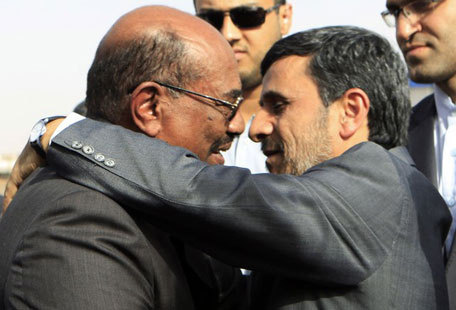Sudan Needs Further Attention

On his way back to Iran from New York, President Ahmadinejad visited Mauritania and Sudan. In a 1-day visit to Sudan, he met with the country’s president and gave a speech for the Sudanese people. In the end, a joint statement was issued by the Iranian delegation and the high-ranking Sudanese officials about mutual, regional and international issues. IRD reviews the visit in an interview with Amir Ziadzadeh:
IRD: What were the president’s objectives in this visit?
AZ: The president’s visit to Africa was not a periodic or specific one, but it was made due to his presence at the UN. Thus, no long-term objectives can be defined. Of course, the intention was very important here, as it benefits Iran, but the timing was not appropriate: the visit required more time due to the strategic relations of two countries.
IRD: How is the visit important after the recent developments in Sudan? How do you evaluate Iran-Sudan relations?
AZ: It is possible that the visit was made due to the recent developments in the northern neighbor, Egypt, and the northwestern neighbor, Libya, the separation of southern Sudan, and the increase in pressure in the Blue Nile and Kurdufan regions [HM1] to support Sudan. It was also economically important for Iran, while the political and strategic relations are more important. The stressing of the two countries’ officials on the existence of a colonial map to separate Sudan shows that cooperation was formed against the mutual enemies, i.e. the US and Israel. The visit definitely will have good effects on the domestic development of Sudan, as it strengthens the country’s officials at least psychologically. It is also noteworthy that it does not have any negative effects on Iran-Northern Sudan relations, because Iran’s position on that region has not been negative so far.
IRD: Considering the problems that have arisen in the relations between Iran and some African countries, how does this visit solve any of those problems?
AZ: The visit to Mauritania and Sudan does not solve the problems, as Iran has had conflicts with Nigeria, Senegal and Gambia. Resolving the conflicts with these countries does not require any mediator, as the conflicts have arisen due to the involvement of some hostile countries like Saudi Arabia.
IRD: What is the Africa’s position in Iranian foreign policy?

